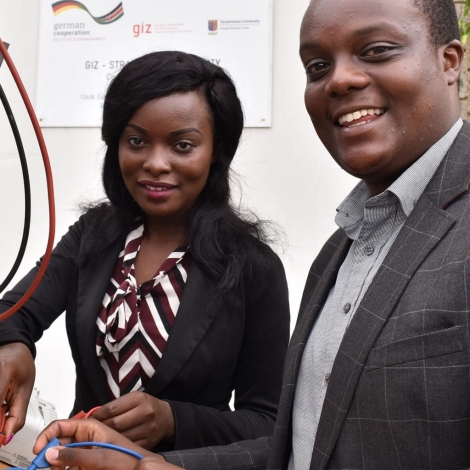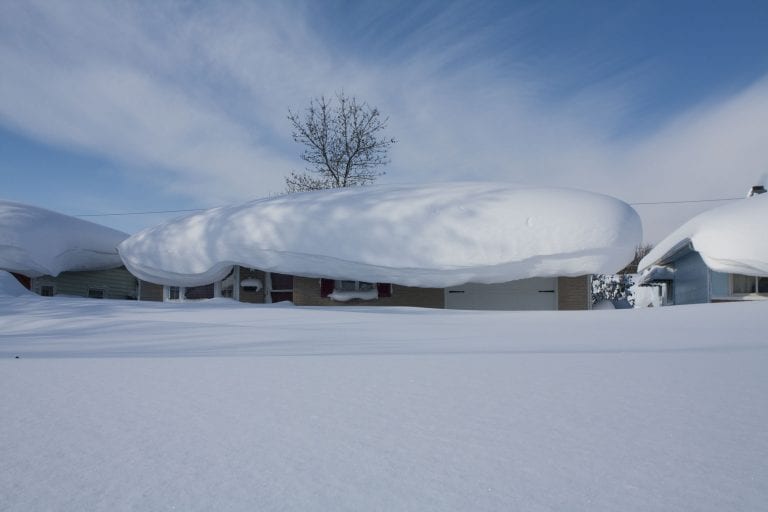Ask Ignatius Waikwa what he has been up to lately and you may have to settle in. Ignatius has piled success upon success in the few weeks since he graduated from Engineering for Change’s Research Fellowship. The short answer is that he won €100,000 in Paris for a solar tricycle design, works as a pro bono consultant for Nairobi’s county government developing a slum and earned a spot in a post-graduate program in project management at the University of Nairobi.
This is the longer answer, a story of the power of engineering know-how to transform communities.
You or someone you know might be interested in Engineering for Change’s Research Fellowship. See our past and current fellows here, and learn how to apply.
Ignatius is a researcher in renewable energy at the Strathmore University Energy Research Center located in his hometown of Nairobi, Kenya. A sample of his work includes studies of the performance of solar photovoltaic plants, solar home systems, solar thermal desalination plants, small hydro plants and smart metering in Kenya. Prior to that, Ignatius graduated from an electrical and electronics engineering program at Jomo Kenyatta University of Agriculture and Technology and he employs that expertise as an active member of the Institution of Electrical and Electronic Engineers (IEEE, one of E4C’s founding members) and the Association of Energy Engineers (AEE).
“I realized that people still lack basic amenities like access to electricity, water and roads. These are problems that can be solved using engineering skills. I realized then that engineering for global development is my life long vocation.”
In 2018, Ignatius began a Research Fellowship with E4C, investigating products built to improve lives in the world’s underserved communities. With his expertise in energy production, Ignatius focused his research on technologies that provide energy access to people and homes that lack reliable power.
“I realized that there are a large number of people who still lack basic amenities like access to electricity, water and roads. These are problems that can be solved using engineering skills. As an engineer, I was challenged and realized then that engineering for global development is my life long vocation,” Ignatius says.
Upon graduating from E4C’s fellowship program, Ignatius has hit a string of milestones. Topping the list, he and a team of three other engineers won €100,000 at the Valeo Innovation Challenge in Paris. The team presented their prototype of a solar-powered tricycle for rural transportation and took the top prize. They plan to apply the money to develop their prototype, form a startup and sell a version of the vehicles that can be used as ambulances in Turkana County, a region in Kenya’s Rift Valley that is home to rural and largely impoverished communities.
“I had access to so many solutions that could help so many people in my country and I hadn’t realized that until I started the fellowship.”
“We realized that people in Turkana County and other areas spend a lot of time trying to fetch firewood and water, walking 7km a day. This is a mobility and a power solution. The vehicle’s batteries can power homes during the night,” Ignatius says.
Around the same time that he was preparing his award-winning prototype, Ignatius applied his stipend from E4C’s fellowship toward a graduate program in project management. Working at E4C prompted him to pursue the degree, Ignatius says. He got a taste for management during the fellowship when he was first exposed to Asana Project Management software.
“This is a skill I probably needed to learn” Ignatius says.
“E4C’s fellowship empowers people if taken seriously. It’s very valuable. It was a great experience for me. And eye-opening.”
Also in that time frame, Ignatius began a pro bono consultation with Nairobi’s county government to develop the Mathare slums. Now in the first phase of the project, he has knocked on doors gathering survey data and sharing news about water filters, sanitation products and, his specialty, energy-producing technologies such as solar-powered lights and phone chargers. If a household has Internet access, Ignatius suggests that they browse E4C’s Solutions Library, a database of products that meet basic needs in underserved communities. Ignatius recommends the resource for products that could improve people’s energy access and meet other essential needs. If they do not have an Internet connection, Ignatius recommends products that are priced comfortably for lower incomes, such as Sun King solar lights.
“Before I started the fellowship, I wondered why we needed a database of tech solutions. Then I went to the field and saw that these solutions actually need to reach these people. I had access to so many solutions that could help so many people in my country and I hadn’t realized that until I started the fellowship,” Ignatius says.
Even with three such monumental projects underway, Ignatius says he plans to pursue more interaction with E4C’s Fellowship next year.
“I think E4C’s fellowship is a great opportunity. And it really empowers people if actually taken seriously. It’s very valuable. It was a great experience for me. And eye-opening,” Ignatius says.

